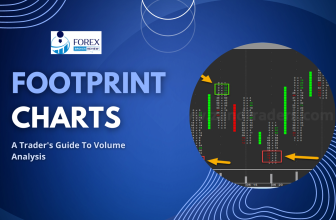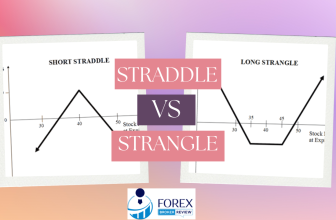
In the fast-paced world of foreign exchange trading, where fortunes can be made or lost with the click of a button, the question of earnings is always at the forefront of traders’ minds. As we approach the year 2023, it becomes increasingly important to analyze and understand the average salary of Forex traders, a topic that has garnered much attention and speculation. Amidst the ever-changing dynamics of the financial markets, one can’t help but wonder: what will the average earnings of Forex traders be in 2023?
While some may argue that Forex trading is a glamorous and lucrative profession, the reality is often far from it. The average salary of a Forex trader in the United States was $83,500 in 2022, with day traders earning a slightly lower average of $65,000. Looking ahead to 2023, it is estimated that the average earnings of Forex traders will hover around $82,000.
However, it is important to note that these figures only represent the average, and individual earnings can vary significantly based on a multitude of factors. Experience, knowledge, location, and the organization or institution one is affiliated with all play a crucial role in determining a Forex trader’s income. Additionally, the minimum capital size required for Forex trading is $100,000, and the best annual performance can yield returns of up to 20%.
It is also worth mentioning that the acceptable annual return for Forex traders can range from 15% to 50%. Some traders have been known to earn as much as $120,000 annually, while others may earn as little as $32,000. Location is another important determinant of income, with Forex traders in the United Kingdom earning an average of £36,000, and those based in London earning £45,000.
In conclusion, while the average earnings of Forex traders in 2023 are projected to be around $82,000, it is important to recognize that this is a broad figure that encompasses a wide range of individual incomes. The accomplishments, performance, and trading style of each trader are key factors that will ultimately shape their earnings. As the world of Forex trading continues to evolve, it is crucial for traders to stay informed and adapt to the ever-changing landscape in order to maximize their potential earnings.
Key Takeaways
- The average annual salary of a Forex trader in the US is projected to be around $82,000 in 2023.
- Factors such as experience, knowledge, location, and organization/institution can impact a Forex trader’s income.
- Forex traders in the US can earn an average of $98,000 with a commission of $25,000, and the highest recorded salary for a Forex trader at Citi Trader was $196,900.
- Junior Traders can earn between $240,000-$3,500,000 annually, while Senior Traders earn approximately $12,000,000.
Salary Range
The salary range for Forex traders in 2023 is estimated to be between $32,000 and $120,000, with some traders earning as high as $120,000. This range is influenced by various factors such as experience, knowledge, location, and the organization/institution the trader works for. Traders with more experience and expertise in forex trading are likely to earn higher salaries.
Additionally, the location of work can also impact income, with traders in New York, Connecticut, and Maine earning between $110,000 and $125,500, while those in Nevada and Idaho earn around $55,000. The income potential for Forex traders is influenced by their accomplishments and performance. Independent traders’ income depends on factors such as initial capital, trading costs, and return on investment. The frequency and style of trading can also impact a trader’s income.
| Year | Average Forex Trader Salary Range (USD) |
|---|---|
| 2017 | $50,000 – $100,000 |
| 2018 | $60,000 – $120,000 |
| 2019 | $55,000 – $110,000 |
| 2020 | $70,000 – $130,000 |
| 2021 | $75,000 – $140,000 |
| 2023* | $80,000 – $150,000 |
Factors Impacting Income
Factors such as experience, knowledge, location, and organizational affiliation play a significant role in shaping the income of individuals in the forex trading industry.
- Experience: The level of experience a forex trader possesses can greatly impact their income. Traders with years of experience are often able to make more informed decisions and navigate the market more effectively, leading to higher profits.
- Knowledge: A deep understanding of forex trading strategies, market trends, and economic factors can give traders a competitive edge and increase their earning potential. Continuous learning and staying updated with industry developments can contribute to higher income.
- Organization/Institution: The organization or institution a forex trader is affiliated with can also influence their income. Traders working for well-established firms or private equity companies may receive higher salaries and bonuses compared to those in public organizations. Additionally, the reputation and resources of the institution can provide traders with better opportunities for growth and higher income potential.
Location-based Variances
Location-based variances in the income of individuals in the forex trading industry can be influenced by various factors such as geographical location, regional economic conditions, and cost of living. These factors can significantly impact the earning potential of forex traders, leading to location-based salary differences and regional earnings discrepancies.
For instance, forex traders in New York, Connecticut, and Maine tend to earn higher salaries, ranging from $110,000 to $125,500, compared to those in Nevada and Idaho, who earn around $55,000. Similarly, forex traders in the UK earn an average salary of £36,000, with London-based traders earning £45,000 and Bruntwood-based traders earning £21,000. These location-based variances highlight the importance of considering the specific region when assessing the earning potential of forex traders.
| Location | Average Salary |
|---|---|
| New York, Connecticut, Maine | $110,000 – $125,500 |
| Nevada, Idaho | $55,000 |
| UK (average) | £36,000 |
| London | £45,000 |
| Bruntwood | £21,000 |
Frequently Asked Questions
What qualifications or certifications are required to become a Forex trader?
To become a forex trader, individuals typically need a strong educational background in finance, economics, or a related field. While there are no specific certifications required, obtaining certifications such as the Chartered Financial Analyst (CFA) or the Financial Risk Manager (FRM) can improve job prospects and demonstrate expertise in the field.
Are there any additional costs or expenses associated with being a Forex trader?
There are additional costs and hidden expenses associated with being a forex trader. These may include trading fees, software subscriptions, data feeds, and potential losses. It is important for traders to carefully consider these costs before engaging in forex trading.
How do Forex traders handle taxes on their earnings?
Taxation implications for forex traders include reporting profits as ordinary income, potentially paying self-employment taxes, and deducting trading-related expenses. Tax planning strategies may involve keeping detailed records, utilizing tax-advantaged accounts, and consulting with a tax professional.
What is the typical work schedule for a Forex trader?
Forex traders typically have flexible hours, allowing them to adapt their work schedule to their personal needs. This flexibility contributes to a better work-life balance, enabling traders to manage their time effectively while staying committed to their trading activities.
Is it possible for Forex traders to earn passive income, or is active trading the primary source of earnings?
Passive income opportunities for forex traders are limited compared to active trading. While some traders may earn interest on their capital or receive dividends from investments, active trading remains the primary source of earnings. Different strategies, such as swing trading or trend following, contribute to traders’ active income.






